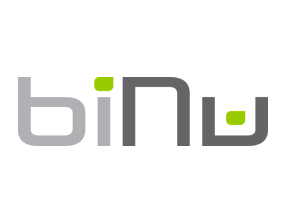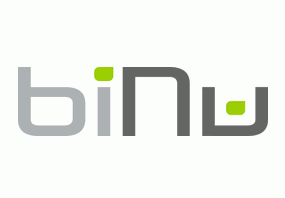 We came to know about biNu some several months ago when we wrote articles about eTXT. There was a lot of mention about it on our Facebook page. Readers compared it to eTXT and later Dasuba. The messaging component of biNu at least. I personally didn’t try biNu until 12 days ago, and what an impression it has left on me!
We came to know about biNu some several months ago when we wrote articles about eTXT. There was a lot of mention about it on our Facebook page. Readers compared it to eTXT and later Dasuba. The messaging component of biNu at least. I personally didn’t try biNu until 12 days ago, and what an impression it has left on me!
The stats we received from biNu are impressive too. biNu usage has grown rapidly in the country. According to the startup, just in the month of August 2011, biNu had in excess of 60,000 unique users, 1.9 million sessions and 22 million page views in Zimbabwe alone. And this from an almost zero user base around April 2011. Zimbabwe joins the list of top biNu markets which includes countries like India, Indonesia, Bangladesh, Egypt, Saudi Arabia, the US and Nigeria.
Locally, the low cost mobile phone distributor, G-Tide, has a localized version of biNu preinstalled on the mobile phones they distribute. If you’ve used a G-Tide messaging and internet application called Khuluma, you’ve used biNu. biNu has also had massive success on social media. Its pages on Facebook have well over a hundred thousand ‘likes’. Some individuals locally have even taken up the role of unofficial biNu evangelists on Facebook.

biNu was founded in September 2008 by Gour Lentell and Dave Turner. Lentell grew up in Zimbabwe and now lives in Australia, where biNu is based. According to its entry on CrunchBase, biNu has received about US$1.32 million in funding so far.
First, the one thing that makes biNu stand out for me is the speed. biNu claims the app offers ‘ultra fast’ access to internet content and this is exactly what I experienced; convenient and immediate access to content. We love it for this.
On the features on offer, let’s just say it’s like the first time you discover Snaptu. You’re wowed and fascinated by the many possibilities it brings to basic feature phones. biNu is indeed a lot like Snaptu, with the addition of inbuilt biNu SMS, chat and email. biNu works on any internet enabled mobile phone. In summary, biNu provides direct access to popular Internet services such as Google Search, Google Translate, Wordnik Dictionary, Wikipedia, News, Weather, Cricket & Soccer scores, exchange rates, mobile app stores as well as the messaging services.
If you have used Snaptu, you’re will find that biNu is not as aesthetically appealing. In fact Snaptu just beats biNu hands down in the ‘appeal’ department. Where Snaptu offers some easy to navigate and very visible icons of your favourite internet content (Facebook, Twitter, RSS feeds and the like), biNu gives you very small icons and favours text listings of the apps inside. In our opinion though, biNu makes up for what it lacks in appeal, with a lightning fast experience; once biNu is loaded, you almost always never have to wait even half a second for any content when you select it, and it does all this without denting your precious internet bundle much.
As for comparing biNu to eTXT (and Dasuba), the fair thing to say is that the two were built for different purposes. It’s very difficult to compare them. The Message Optimiser (the technology powering eTXT and Dasuba) is about creating a link between the internet and basic GSM mobile phones. Through eTXT, a user with a basic GSM mobile phone (a Nokia 1200, say) can update their Facebook wall or chat with a friend on Gtalk. biNu on the other hand is about making java feature phones smart, and delivering internet content in an easy to access package.
That’s not to say of course that the roads of the two do not meet at all. They do. Both are platforms at the end of the day; new applications can be built on the platforms blurring the line that clearly separates them now. biNu has opened up its platform to developers at developer.binu.com where tech savvy content publishers can create their own apps, and distribute them in any way they wish on biNu. Locally, developers are also starting to realize they can use the Message Optimiser for more than just eTXT and Dasuba; there was one start-up trying to do exactly that at the recent Startup Challenge.
A demonstration of just how different the two applications are is how they treat SMS. As of yesterday (when we checked) biNu provides 4 free SMS messages every 10 hours per day. To get more, a user has to buy biNu credits and currently this is not possible in Zimbabwe due to the lack of online payment systems. eTXT (or Dasuba) on the other hand provides unlimited SMS from the internet to mobile phones. A basic phone user responding to a biNu SMS message is charged the regular SMS rate of US 9 cents per message, while an eTXT user is charged only US 5 cents per message.
Overall, we love biNu. We also love the fact that Lentell and Tim Wightman, the guy responsible for app generation and distribution at biNu, both grew up here in Zimbabwe!

11 comments
Great article Soul, but if you do happen to get in touch with the guys from biNu please inquire if they are planning to release an iOS version of biNu for iPhone & iPad users.
Great article Limbikani, thank you very much. Have to say it’s one of the best and most accurate articles written about biNu anywhere! We plan on providing a lot more apps, services and social experiences on biNu in the coming weeks and months.
You should check out your Techzim news website on biNu, it’s a lightning fast way to read your great news and views! 🙂
I’ve not been back to Zim for a long time – I miss it and am looking forward to visiting again, and with my kids to show them my roots…
Gour
Just had a look very fast indeed, is this site served through biNu via wordpress plugin? rss/atom feed? or another custom interface? how would one get their site/content/application onto biNu?
Yes, we just used the standard RSS feed that WordPress (or whatever CMS is being used for the Techzim website) provides by default. In the case of Techzim, the RSS feed is being provided through Feedburner (http://feeds.feedburner.com/techzim).
We have an easy to use drag-and-drop tool in biNu “Dev Central” that can be used to build biNu apps and services in minutes using any RSS feed. That’s how we provide all the news services in biNu.
If you let us know what RSS feeds you would like in biNu, we’d be happy to add them for you, just let us know, or you could do it yourself!
Kudos to guys making our countrymen to enjoy the global village through non frustrating means. On a separate note….Have been trying to figure out my farming budget and ……..you guesed right, very little content on agric inputs prices. I think this is a very decent area where local content can be created.
It’s a great idea! Can you point us to sources of agric input prices?
Great read. The potential for local developers is just ENORMOUS!!!! Just a querry though @gour , from my experience with the platform it tops you up to 4 credits at 12am GMT and not every 10 hours, or have things changed? Further, credits are available locally via binuzw@binu.com or binu@zol.co.zw. At 2.5c a credit, goodbye sms on my Telecel line.
Yes, there is an error in the article. We provide 4 free credits per day, based on GMT time rather than local at present. Maybe Limbikani did not notice because he’s busy sleeping for 14 hours a day 🙂
my bad. corrected!
SPORT FOTBOOL
[…] Essentially they were a free SMS app. The app could run on any feature phone, so essentially, biNu became a very popular “messaging” app. Because SMS was still very much in use, a free alternative achieving […]